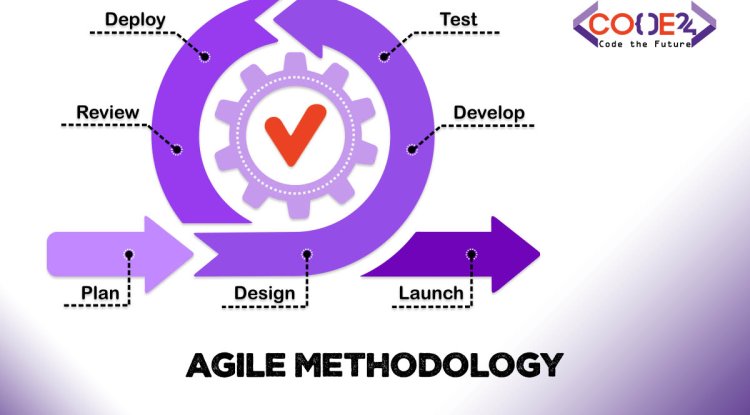Agile Methodology: Enhancing Efficiency and Collaboration in Project Management
Discover the benefits of Agile methodology in project management, its key principles, and how it promotes collaboration, adaptability, and efficiency. Explore this in-depth guide to Agile, including its iterative approach, Scrum framework, and real-world applications.

Introduction
In today's fast-paced business environment, organizations are increasingly adopting Agile methodology for project management. Agile offers a flexible and collaborative approach that enables teams to respond quickly to changing requirements, ensuring efficient project delivery. In this blog, we will explore the core concepts of Agile methodology, its benefits, and how it revolutionizes project management practices.
What is Agile Methodology?
- Understanding the principles and values of Agile.
- Agile vs. traditional project management approaches.
- Agile Manifesto and its key principles.
Agile Frameworks
- Overview of popular Agile frameworks such as Scrum, Kanban, and Lean.
- Exploring the Scrum framework and its roles, events, and artifacts.
- Understanding the iterative and incremental nature of Agile development.
Benefits of Agile Methodology
- Increased collaboration and communication among team members.
- Flexibility to adapt to changing project requirements.
- Enhanced visibility into project progress and early risk mitigation.
- Higher customer satisfaction through regular feedback loops.
- Improved team morale and productivity.
Agile Implementation Process:
- Steps to adopt Agile in project management.
- Setting up Agile teams and defining roles and responsibilities.
- Planning and prioritizing Agile projects.
- Executing Agile sprints and iterations.
- Monitoring progress and adjusting plans as needed.
Real-World Applications of Agile:
- Agile in software development and IT projects.
- Agile in marketing campaigns and product development.
- Agile in cross-functional teams and remote work environments.
Conclusion
Agile methodology has emerged as a transformative approach to project management, enabling teams to deliver high-quality results efficiently. By embracing Agile principles and frameworks, organizations can enhance collaboration, adaptability, and customer satisfaction. Implementing Agile practices brings numerous benefits, revolutionizing project management practices across various industries
What's Your Reaction?
 Like
0
Like
0
 Dislike
0
Dislike
0
 Love
0
Love
0
 Funny
0
Funny
0
 Angry
0
Angry
0
 Sad
0
Sad
0
 Wow
0
Wow
0













































